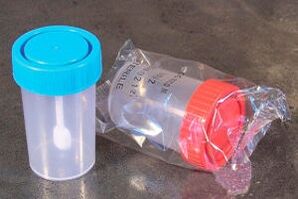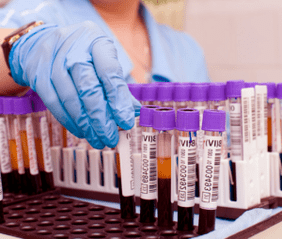
Parasite testing in adults is a reliable way to detect intestinal and other forms of helminthic infestation. Based on the results obtained during the research, the specialist prescribes the appropriate treatment method.
Get tested for parasites regularly, not when symptoms indicate the presence of worms. Similar studies are needed for both children and adults.
The basic way
Cal

The traditional way to detect worms in humans is to analyze feces. During the study, experts examine fecal fragments for the presence of parasite eggs. To get the most reliable results, at least 2-4 studies are carried out with an interval of several days.
It allows to identify parasites such as:
- nematodes, or roundworms;
- tapeworms (cestodes);
- trematodes (flukes).
The analysis for this parasite, which is relatively simple, cannot claim the reliability of the results.
To obtain reliable results, it is desirable to send a stool sample to the laboratory within 45 minutes after a bowel movement. If this is not possible, then you can keep the container with the sample in the refrigerator, but not more than 8 hours.
joint histology program
The next method used to diagnose worms in adults is histological coprogram. This study involves the microscopic analysis of stool composition based on the study of its parts. Such a procedure will reveal worm larvae, fragments of their bodies, as well as the presence of fully mature individuals.
The weakness of this technique is the inability to determine the specific type of parasite that develops in the human body.
blood

The most effective is a study based on the patient's blood. This analysis determines the antibodies and antigens contained in the blood to certain types of parasitic organisms. It also provides information about the type of helminth, its ability to multiply and quantity.
Due to the fact that helminthic invasion is characterized by the release of toxic waste products of the parasite, the composition of the blood changes. This allows the doctor to suspect the presence of worms.
A variation of this study is the enzyme immunoassay.
The sensitivity of this method is quite high (up to 90%). Although none of the other studies revealed the presence of worms, the enzyme-linked immunosorbent assay provided comprehensive data on the types and prevalence of helminths.
Blood sampling for the study is done on an empty stomach, from a vein.
Blood samples are checked within 2-5 days. The results obtained are interpreted by the attending physician.
The analysis will allow the dynamic detection of diseases caused by helminthic invasion.
What are the parasitic diseases detected by this study? It:
- ascariasis;
- fasciolosis;
- amoebiasis;
- toxoplasmosis;
- giardiasis;
- opisthorchiasis;
- cutaneous and visceral leishmaniasis;
- cysticercosis.
You can take a test for parasites at various private clinics, whose specialists guarantee quick results.
When you want to take it
Sometimes helminthic invasion occurs without obvious symptoms, which greatly complicates both the possibility of timely diagnosis and treatment. However, there are characteristic features, among them:
- persistent headache;
- frequent colds;
- constipation;
- sleep disorders;
- nail fragility;
- the appearance of cracks on the heel;
- intestinal disorders;
- itching in the anus.
Parasitic invasion is fraught with serious complications. A large number of worms connected by balls can cause intestinal blockage. Among other dangerous consequences are hypovitaminosis, beriberi, anemia, jaundice, chronic cell damage that triggers the development of cancer.






































